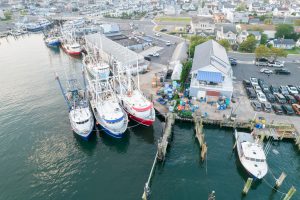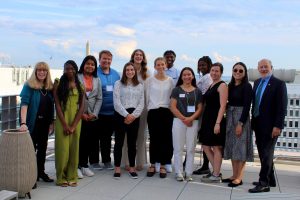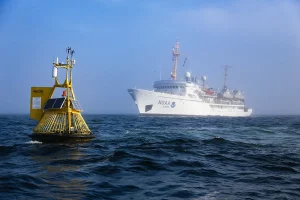California State University, Northridge (CSUN)
2.5-year, NSF-funded technician position at California State University, Northridge (CSUN), to support research in the area of ocean acidification (OA) and its effects on corals, algae, and coral reefs in Moorea. The successful candidate will work under the supervision of RC Carpenter and PJ Edmunds (grant PIs, robert.carpenter@csun.edu and peter.edmunds@csun.edu), as well as a postdoctoral scholar, to elucidate the effects of OA on corals, algae, and coral reefs in Moorea.
The research focuses on the ecophysiology of corals and algae, and spans investigative scales from organisms, to assemblages of species, and natural communities; experiments will involve microcosms, flumes, and in situ (field) analyses. Candidates are expected to have an MS in a field-based marine biology topic, experience in the biology/ecology of marine organisms, a history of working in tropical environments, and a strong background in the maintenance of marine aquaria, biological laboratory skills, seawater chemistry, and marine field operations (driving of small boats, scuba diving, etc); scuba diving with a AAUS training (or equivalent) is required. The research involves significant periods (up to 6 months/year) of work overseas in Moorea, French Polynesia, and potentially periods in Hawaii. This position provides unique opportunities to work with a team studying the biology of coral reefs in the Caribbean and Pacific, and work with colleagues in the Moorea Coral Reef LTER, and Hawaii.
The salary includes benefits. Applicants should submit a covering letter in which they describe their research training and interests, CV, and arrange to have two letters of reference submitted. All applications must be made through the CSUN website.





